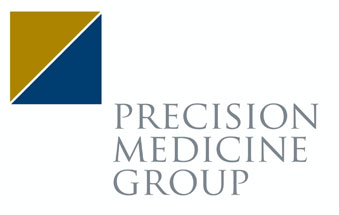Defining “The Good Crossover” Financing
Last week, Locust Walk published a whitepaper on the evolving role of crossover financing rounds over the last 5 years. Of the 194 rounds they analyzed, they found:
- 92 companies had deals with six or more investors in the crossover round; 102 involved deals with fewer than six new investors.
- 32 deals involved financial advisors vs 162 that didn’t
- 139 crossover rounds raised $60M or more; 55 financings raised less than $60M.
- > 108 companies each raised more than $100M in their IPOs
- 129 companies had <1 year of cash runway at the time they filed their S-1 statements; 65 deals had ≥1 year or more.
- 106 deals involved companies whose lead asset was between discovery and Phase 1 clinical trials, while 88 deals involved lead assets that had progressed to Phase 2 clinical trials or beyond.
Overall, they identified three factors that had a consistently positive material impact on the IPO’s performance: the size of the crossover, the number of new investors in the crossover round, and the use of a crossover advisor. Companies that met these criteria consistently showed higher pre-money valuations, higher IPO valuation step-ups, and stronger share price performance in the market post-IPO.
Beginning of the End of MiFid II?
According to reporting by Investment Week, the UK’s Financial Conduct Authority is considering scrapping MiFid II research rules for companies with market caps less than £200M ($278M). The move is being considered as part of a package of proposals designed to “reduce the burden” on smaller investment firms and improve the competitiveness of UK financial services.
GameStop Blowback: SEC Considering Expanding Fund Disclosure Rules
According to Bloomberg, following the GameStop rally and subsequent implosion of Archegos Capital Management, SEC officials are now exploring how to increase transparency for the type of derivative bets that sank Archegos. The review is still in its early stages, but among the issues the SEC is evaluating are whether filings should include derivatives and short positions and if firms should submit 13Fs more frequently than every three months. This would, of course, significantly increase transparency – likely a welcome change from companies and other business groups who have long argued that investors should be required to both disclose more details on their portfolios, and to do so with greater frequency.
Interesting, this would also be the opposite development from the proposal brought forth during the Trump administration last year to exempt firms from filing 13Fs unless they held at least $3.5B in stock, which was ultimately dropped following heavy criticism from public companies (including many Stern IR clients!)
A New Index in Town?
Starting June 21st, the IBB will stop tracking the Nasdaq Biotech Index, and instead start tracking a new ICE Biotech Index, which will be like the IBB but exchange-agnostic. U.S. listed biotech companies that qualify will go into the index and subsequently be tracked by the IBB, regardless of exchange choice. The IBB will also change its fund name from “iShares NASDAQ Biotechnology ETF” to “iShares Biotechnology ETF.”
Market Update:
The overall markets were stable this week with the NASDAQ, DJI and S&P 500 closing down 3%, up 1% and down 1%, respectively. The VIX closed up 4%, sitting at 3.58 as of market close on 5/6. The biotech markets somewhat underperformed, with the NBI, BTK and XBI all closing down 4%, 9% and 3%, respectively.
Over the past couple of weeks, we saw the following deals price:
- 2 SPAC mergers: Jasper (with Amplitude Healthcare Acquisition Corporation) and Roivant with Montes Archimedes Acquisition Corp).
- 4 IPOs: Aveanna ($459M); Privia ($449M); Vaccitech ($110M); Werewolf ($120M).
- 2 follow-ons: Aldeyra ($125M); Compass Pathways ($144M).
- Many private financings, including: Stern IR client Arch Oncology (Series C, $105M); Affinia (Series B, $110M); Capsida (Series A, $140M); Cellares (Series B, $82M); Dyno (Series A, $100M); Eikon (Series A, $148M); Esker (Series A, $70M); Stern IR client Exscientia (Series D, $225M); Gilgamesh (Series A, $27M); Jaguar (Series B, $139M); Mogrify (Series A, $33M); Oxford Nanopore (undisclosed, £195); TwinStrand (Series B, $50M).
Finally, we wanted to call a couple of recent acquisitions, including Stern IR client Kuur for $185M by Athenex and Chiasma, which was acquired by Amyrt for $50M.

